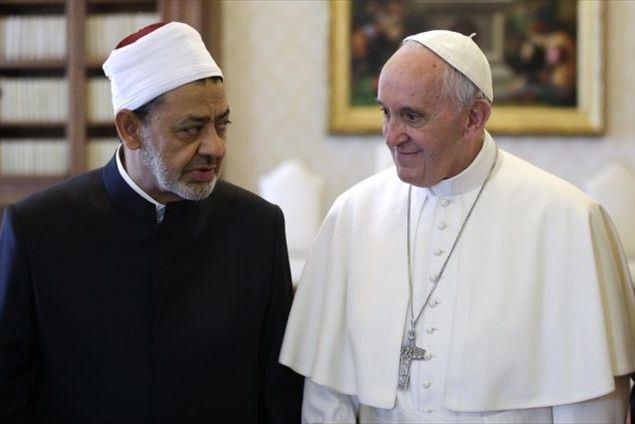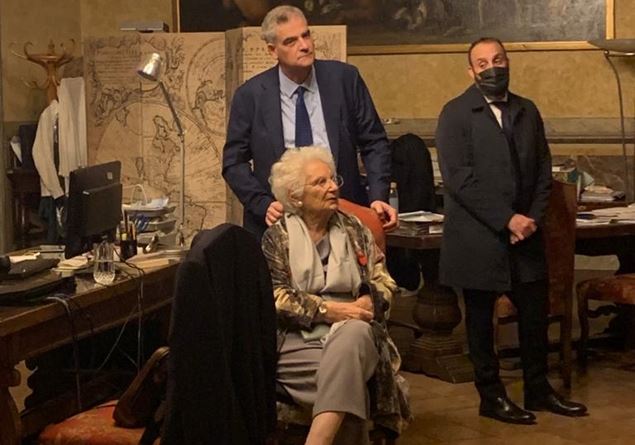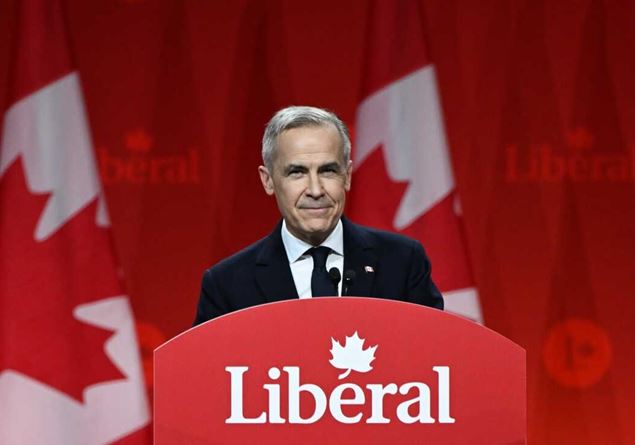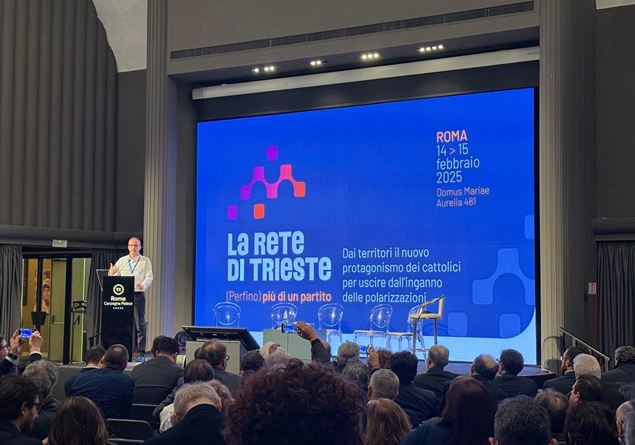The seeds thrown to the social week of Trieste in July 2024 continue to bear fruit. Christian inspirational administrators remain in contact with each other, dialogue, confront each other. They do this in Rome, for two days, at the Domus Maria, the historic building of the Italana ecclesial community, dear to the Catholic action, now transformed into a 4 -star superior hotel renamed Th Rome Carpegna Palace Domus Mariae. The congress room dedicated to Vittorio Bachelet is packed with 400 people, others follow streaming. By now there are almost a thousand throughout Italy.
The place, so rich in memories, will not go down in history as the cradle of the new political party. Even if you read on the big screen: The Trieste network. (Even) More than one party.
Francesco Russotoday vice -president of the Friuli Venezia Giulia regional council, former senator of the Democratic Party between 2013 and 2018, marks from the stage: “We say it once again, even to those who in recent months – some also with a pinch of bad faith – They tried to paint us simply as the nostalgics of a new center (as there were already enough), the foolish crutch (or spoilers) of one or the other political force, or a group of arrivals in search of some place in Parliament: We are not a lobby, we do not want to give life to currents of one or the other deployment, we do not want to give birth to yet another partino. We are a network! We are born to try to unite different people and initiatives, to respond to a need that some of us have confided in the margin of the social week. A simple need. That of being less alone “.
Giuseppe NotarstefanoPresident of the Catholic Action, he explains that this “new civil protagonism of Italian Catholics” must “regenerate democratic life by raising the level of democratic dialectic”, through “craftsmanship of intertwining and weaving”.
Elena Granatavice -president of the scientific committee organizing the social week, indicates a style of action: “Being in the middle, don’t stay in front”. He invites you not to be nostalgic and wonders: “Are we unable to fall in love with the future?”.
Russo underlines that the goal of the Trieste network is “to report politics to talk about people, their daily lives, their work, aspirations to a beautiful life, their need to be protected and cared for when they need it, offer to All occasions to be together, create good community, generating increasingly shared spaces, re -tearing that designing and making together is not always easy but it makes us live better. And then work on us, form – not only young people – to rediscover the places and the public space, those in which you compare not virtually, you learn to listen to the other, to confront different positions and to find points of contact and virtuous mediations. Italy needs this, not of yet another claim of mere protagonism, not even by Catholics “.
The new constituent of Christian inspiration administrators presents itself as a place of dialogue, comparison and participation in the sign of transversality and listening from below. “We wanted to awaken the sense of democratic participation at all levels,” he underlines Monsignor Luigi Rennapresident of the Social Week and Archbishop Committee of Catania. Renna recalls that for Catholics engaged in politics there is a polar star: “If we are here it is because the social doctrine of the Church has affected our consciences”.
In the various interventions, words and concepts are repeated: listen, dialogue, make the “we” prevail over “I, create a horizontal relationship, participation, representation. But Ernesto Maria Ruffiniformer director of the Revenue Agencies, one of the undoubtedly most seen characters of this galaxy, also recalls the need for a certain neatness in a world where you are dealing with characters such as Trump and Musk. For Ruffini, the watershed is the European Popular Party, which has played a role of embankment against the right in Austria and Germany. “But in Italy”, he says, “this watershed has not been traced” and recalls the need to “put some arms of the clearance of the right”, more than ever necessary in a world where “the democracy is being opposed to freedom”.
From the 23 working groups that worked until late evening on February 14 (“We had against all the saints: Valentine’s Day and Sanremo”, jokes Francesco Russo) five themes are indicated on which to continue the work of the Trieste network. Young people and community: from solitude to sharing; actions for inclusive welfare; active citizenship and collaboration agreements; the depopulation of small towns; the formation of citizens in the participation and co -producing of territorial health services.
“A great mobilization awaits us,” promises Russo. After Easter a day will be organized in which 100 press conferences will take place at the same time throughout Italy to illustrate the agendas presented in the municipal councils of the capital of Italy. Meanwhile, the Trieste network will give a provisional coordination to spread a statute. The members of the coordination will be extracted among the people who will declare themselves available.








